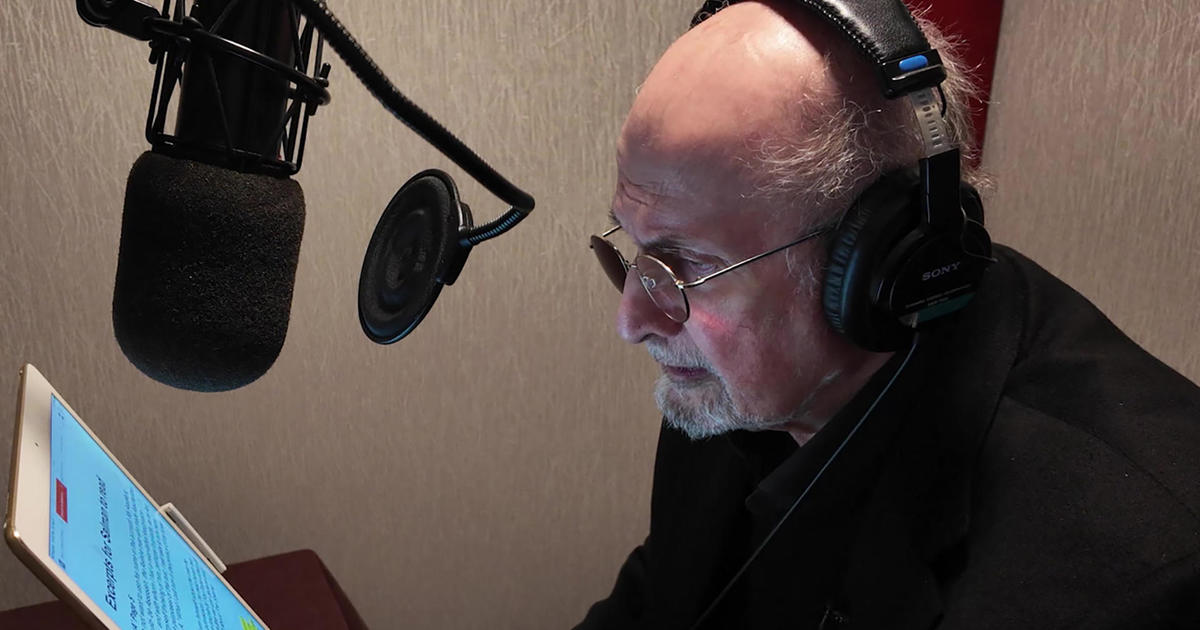The most upsetting thing about the attack
Author Salman Rushdie spent years in hiding after Iran's leader Ayatollah Khomeini called for his assassination in 1989, declaring Rushdie's novel, "The Satanic Verses," blasphemous and an insult to Islam. After 10 years Rushdie came out of hiding and moved to the United States, where he felt safe. Then, on Aug. 12, 2022, at a literary festival in Chautauqua, New York, he was attacked by a knife-wielding assailant. Rushdie was stabbed 15 times and nearly died. He lost his right eye in the attack. He has come to terms with the attempt on his life the only way he knows: by writing about it in his new book. "Knife" comes out this week.
Rushdie read several excerpts from "Knife" for 60 Minutes.
"I would answer violence with art," says author Salman Rushdie. He initially didn't want to write his new book "Knife" about the attack, but he felt he needed to own what happened, refusing to be a victim.
"No matter what I've already written or may now write, I'll always be the guy who got knifed. The knife defines me. I'll fight a battle against that, but I suspect I will lose," he writes.
a"There was nothing supernatural about it. No 'tunnel of light.' No feeling of rising out of my body," writes Rushdie, describing his near-death experience in 2022 in his new book. "In fact, I have rarely felt so strongly connected to my body. My body was dying, and it was taking me with it."
"I do not want to use his name in this account," the author writes of his 24-year-old assailant. In "Knife" Rushdie refers to the attacker as "the A." After the attack, he learned the assailant had only read a couple of pages from his book, "The Satanic Verses," according to the New York Post.
"So it's you. Here you are." Those were Rushdie's first thoughts as a man with a knife rushed towards him before stabbing him.
"It is said that Henry James's last words were 'So it has come at last, the distinguished thing.' Death was coming at me, too, but it didn't strike me as distinguished. It struck me as anachronistic," says Rushdie.
While talking with 60 Minutes' Anderson Cooper, Rushdie explained: "It felt like something coming out of the distant past. And trying to drag me back in time."
"There was the knife in the eye. That was the cruellest blow, and it was a deep wound. The blade went in all the way to the optic nerve, which meant there would be no possibility of saving the vision. It was gone," writes Rushdie.
After being stabbed 15 times, Salman Rushdie's face was slashed open. In his new book "Knife," he writes his face looked like "a sci-fi movie special effect." He describes his eye as bulging out of its socket and hanging down on his face like a large soft-boiled egg. He writes: "the swelling was so bad that the doctors didn't even know, in those first days, if I still had an eyelid. (I did.)"
In the days after the attack, he didn't recognize his own reflection. "The lips of the man in the mirror do not move. There is a slash across the top of his forehead," Rushdie writes. "Now he is the man beyond the mirror and the mirror is behind him and dark. He is the stranger who has to play his part."
If Salman Rushdie testifies against his assailant in court, this is what he plans to say: "I find I have very little to say to you. Our lives touched each other for an instant and then separated. Mine has improved since that day, while yours has deteriorated. You made a bad gamble and lost."
"The last thing my right eye would ever see: I saw the man in black running toward me down the right-hand side of the seating area. Black clothes, black face mask. He was coming in hard and low," writes Rushdie in his new book, "Knife." "I didn't try to run. I was transfixed."
- In:
- Salman Rushdie
